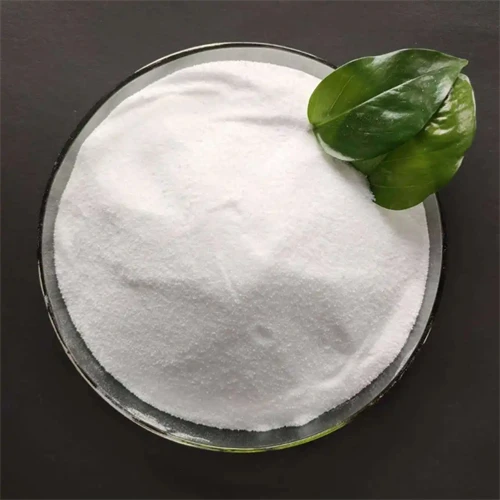Warning: Undefined array key "title" in /home/www/wwwroot/HTML/www.exportstart.com/wp-content/themes/1198/header.php on line 6
Warning: Undefined array key "file" in /home/www/wwwroot/HTML/www.exportstart.com/wp-content/themes/1198/header.php on line 7
Warning: Undefined array key "title" in /home/www/wwwroot/HTML/www.exportstart.com/wp-content/themes/1198/header.php on line 7
Warning: Undefined array key "title" in /home/www/wwwroot/HTML/www.exportstart.com/wp-content/themes/1198/header.php on line 7
- Afrikaans
- Albanian
- Amharic
- Arabic
- Armenian
- Azerbaijani
- Basque
- Belarusian
- Bengali
- Bosnian
- Bulgarian
- Catalan
- Cebuano
- China
- China (Taiwan)
- Corsican
- Croatian
- Czech
- Danish
- Dutch
- English
- Esperanto
- Estonian
- Finnish
- French
- Frisian
- Galician
- Georgian
- German
- Greek
- Gujarati
- Haitian Creole
- hausa
- hawaiian
- Hebrew
- Hindi
- Miao
- Hungarian
- Icelandic
- igbo
- Indonesian
- irish
- Italian
- Japanese
- Javanese
- Kannada
- kazakh
- Khmer
- Rwandese
- Korean
- Kurdish
- Kyrgyz
- Lao
- Latin
- Latvian
- Lithuanian
- Luxembourgish
- Macedonian
- Malgashi
- Malay
- Malayalam
- Maltese
- Maori
- Marathi
- Mongolian
- Myanmar
- Nepali
- Norwegian
- Norwegian
- Occitan
- Pashto
- Persian
- Polish
- Portuguese
- Punjabi
- Romanian
- Russian
- Samoan
- Scottish Gaelic
- Serbian
- Sesotho
- Shona
- Sindhi
- Sinhala
- Slovak
- Slovenian
- Somali
- Spanish
- Sundanese
- Swahili
- Swedish
- Tagalog
- Tajik
- Tamil
- Tatar
- Telugu
- Thai
- Turkish
- Turkmen
- Ukrainian
- Urdu
- Uighur
- Uzbek
- Vietnamese
- Welsh
- Bantu
- Yiddish
- Yoruba
- Zulu
Nov . 04, 2024 15:43 Back to list
Understanding the Role and Effects of Aspartame in Food and Beverages
The Function of Aspartame Understanding Its Role in Modern Nutrition
Aspartame is one of the most widely used artificial sweeteners in the food industry, particularly in the formulation of low-calorie and sugar-free products. Composed of two amino acids, phenylalanine and aspartic acid, aspartame is approximately 200 times sweeter than sucrose (table sugar). As a result, it allows food and beverage manufacturers to reduce calorie content while maintaining the sweetness consumers expect. This article explores the function of aspartame in various contexts, including its applications, safety, and impact on diet and health.
Sweetening Agent in Food Products
The primary function of aspartame is as a sweetening agent. It is commonly found in a myriad of products, such as soft drinks, candies, desserts, and even pharmaceuticals. Its high sweetness intensity means that only a small amount is needed to achieve the desired taste, greatly reducing the total caloric value of the product. This makes aspartame an attractive alternative for those looking to reduce sugar intake or manage weight.
Benefits for Diabetics and Weight Management
For individuals with diabetes, aspartame provides a way to enjoy sweet flavors without significantly affecting blood glucose levels. As a non-caloric sweetener, it does not require insulin for metabolism, making it a safe choice for managing blood sugar levels. Additionally, aspartame is instrumental in weight management strategies, allowing people to satisfy their sweet tooth while adhering to calorie-restricted diets. This has made it a staple in products marketed towards health-conscious consumers.
Controversies and Safety Evaluations
Despite its widespread use, aspartame has not been without controversy. Since its approval by the U.S. Food and Drug Administration (FDA) in 1981, there have been ongoing debates regarding its safety. Some consumers express concerns about potential adverse health effects, citing anecdotal claims linking aspartame to headaches, allergic reactions, and even more serious conditions. However, numerous scientific studies and regulatory evaluations have consistently affirmed aspartame's safety when consumed within established acceptable daily intake (ADI) limits.
aspartame function

Organizations such as the FDA, the European Food Safety Authority (EFSA), and the World Health Organization (WHO) have conducted extensive reviews of aspartame, concluding that it is safe for human consumption. The ADI for aspartame has been set at 40 mg/kg body weight per day in Europe and 50 mg/kg in the U.S., significantly higher than typical daily consumption levels for most individuals.
Nutritional and Sensory Contributions
Aside from its role as a sweetener, aspartame serves additional functions in the food matrix. Its inclusion can enhance flavors and mask bitterness in products such as medications and some food items. The unique chemical structure of aspartame allows it to mimic the taste profile of sugar closely, leading to a more satisfying consumer experience.
Moreover, aspartame contributes minimal calories to products, allowing manufacturers to advertise low-calorie or reduced-sugar claims, catering to a growing demographic concerned about health and nutrition. This can lead to increased product appeal and marketability, aiding companies in meeting consumer demands for healthier options.
Conclusion
Aspartame plays a significant role in modern nutrition as a non-nutritive sweetener that provides sweetness without calories. Its applications span across various industries, and its benefits for individuals with specific dietary needs are notable. While discussions about its safety continue, regulatory agencies have confirmed that aspartame is safe for consumption within the recommended limits. As health trends shift towards lower sugar intake and mindful eating, aspartame will likely remain a relevant and valuable component in the food and beverage industry, helping consumers achieve their dietary goals while still enjoying the flavors they love.
In summary, understanding the functions and implications of aspartame helps illuminate its crucial role in contemporary dietary practices, making it an essential topic in discussions about nutrition and consumer health.
Latest news
-
Certifications for Vegetarian and Xanthan Gum Vegetarian
NewsJun.17,2025
-
Sustainability Trends Reshaping the SLES N70 Market
NewsJun.17,2025
-
Propylene Glycol Use in Vaccines: Balancing Function and Perception
NewsJun.17,2025
-
Petroleum Jelly in Skincare: Balancing Benefits and Backlash
NewsJun.17,2025
-
Energy Price Volatility and Ripple Effect on Caprolactam Markets
NewsJun.17,2025
-
Spectroscopic Techniques for Adipic Acid Molecular Weight
NewsJun.17,2025

